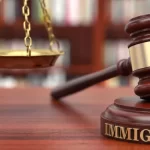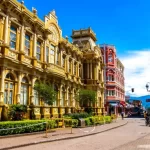The Costa Rica Economic Recession – The “Elephant” In The Room
I’ve lived in Costa Rica for over twenty-one years, practicing law for seventeen of those years. I practiced law in Victoria, B.C, for fourteen years prior to moving to Costa Rica in August 1998. I would say, with that background, that I have a better than average understanding of the “mechanics” of both business and social norms and practices in Costa Rica.

Since 2013, I have written blogs for Q Costa Rica on various topics, but in particular, about what I saw to be a growing trend toward an economic recession, which if not acted upon with corrective measures being implemented, would consume the country with insurmountable debt and public security problems. Unfortunately, in the years 2013, through 2018, this looming catastrophe became the “elephant in the room”, that no Tico wanted to speak about.
The blogs that I chose to write on this issue are all available in the “Blogs” tab archives on the Q Costa Rica site, under my name. The first was entitled, “The Costa Rica Budget Or Will Costa Rica Be The New Greece”, published in Q on October 13, 2013. In that blog, I highlighted a report from the Comptroller General for Costa Rica, indicating the significant rise in Public Sector salaries that was unsustainable and made reference to the state of affairs which existed in Greece at that time, which had arisen under similar circumstances as were then occurring in Costa Rica.
In my blog published in Q on October 20, 2014, entitled, “An Open Letter To The President Of The Republic Of Costa Rica, Guillermo Solis”, I indicated how the increased Public Debt, related predominantly to the exorbitant salaries, benefits, and pensions paid to Public Sector employees and related onerous taxation on the Private Sector, was negatively impacting the ability to do business in Costa Rica. The following is a direct quote from this blog, “The Private Sector must be the “engine” for the economy in any country, for the country’s economy to be healthy, not the Public Sector.”
In my blog published in Q on August 13, 2015, I made the following recommendations as to how I saw the potential solving of the country’s pending economic demise:
1. Public sector wages and benefits must be capped and in the case of benefits, such as pensions, rolled-back. Wages, likewise must be rolled-back in an incremental manner over a short time period. Will this create a hardship for those affected; of course it will. Could there be civil unrest generated by such a move, as has happened in Greece under similar circumstances; yes, possibly it could.
Do you want to point fingers at who is responsible for this economic mess of Public Sector wage and benefit spending being out of control; Oscar and Rodrigo Arias are your men to point at, as was admitted by them in the recent meeting with President Guillermo Solis. The Arias’ stated that they had not properly considered the effect of raising a few hundred upper level professional Public Sector salaries during the 2008 economic down-turn (Oscar Arias was President), as to the effect on the Public Sector salaries and benefits paid to the Civil Service employees as a whole.
2. The tax structure and the related structure for the cost of doing business in Costa Rica must be made competitive with other countries to attract foreign investment into Free Trade Zones, the tourism sector, and the like. This will have the effect of stemming the current growing unemployment problem in the Country, put more money in the hands of employed Costa Ricans, and generate more general tax revenue through payroll deductions for those so employed. There will also be a reduced cost to the Government for social and domestic problem solving associated with the rising unemployment circumstances.
3. The effective exchange rate between the Colon and the U.S. Dollar must be made real, as opposed the current Central Bank manipulated exchange rate currently in effect. The true exchange rate is probably somewhere between 600 and 700 colones to the U.S. Dollar. This will certainly be a hardship for those Costa Ricans paying loans, or mortgages in dollars, with wages and salaries being received in colones. Obviously, monthly payments to service such debts would rise for those affected by such an exchange rate adjustment. However, the adjustment would certainly stimulate the Exportation Sector of the Economy and would further bolster foreign investment in the Country and tourism in general; again, producing more general tax revenue.
In my opinion, this three-point plan of attacking and solving the current economic crisis in the country, is the only viable plan to follow, but it will require a President and a Government as a whole, to have “the right stuff” to implement it.”
It is interesting to note, that the current administration of President Carlos Alvarado, is now adopting some of these proposed solutions to the economic crisis. Hopefully, it is not “too little and too late”.
Similar themes were expressed in my blogs published in Q, entitled “Mr. President, May I Invite You For A Beer”, dated September 8, 2015, and “The Current Economic Crisis In Costa Rica, How Did It Arise?”, dated September 13, 2015.
On May 2, 2016, my blog entitled, “Why Are There So Many New Cars On The Streets Of San Jose?”, was published. The theme of this blog was the “stop-gap” measure promoted by the Government of the day, to allow for easy consumer bank financing for new car purchases.
The Government import duty on new cars is approximately sixty percent of the purchase price, which the citizenry was all too willing to undertake paying, for the pleasure of driving a new financed vehicle.
In return, the Government was rewarded with the required revenue stream to finance the Public Debt for another short period of time, forestalling the inevitable.
Now, that very available consumer credit has been compounded by out-of-control credit card debt, reducing the effective purchasing power of consumers to less than fifty percent of their monthly salary, with the rest going to debt servicing.
In closing, I am of the opinion, that with some proactive planning and action commenced some years ago, the current economic recession might have been avoided, along with a lot of economic hardship for all of the citizenry of Costa Rica. Unfortunately, proactive problem solving is a sorely lacking attribute of Costa Rican thinking.
My hope is that there is still time to effect the necessary corrective measures to avoid the descent into chaos and violence that has affected other countries, such as Greece, which have encountered similar circumstances in the past.



